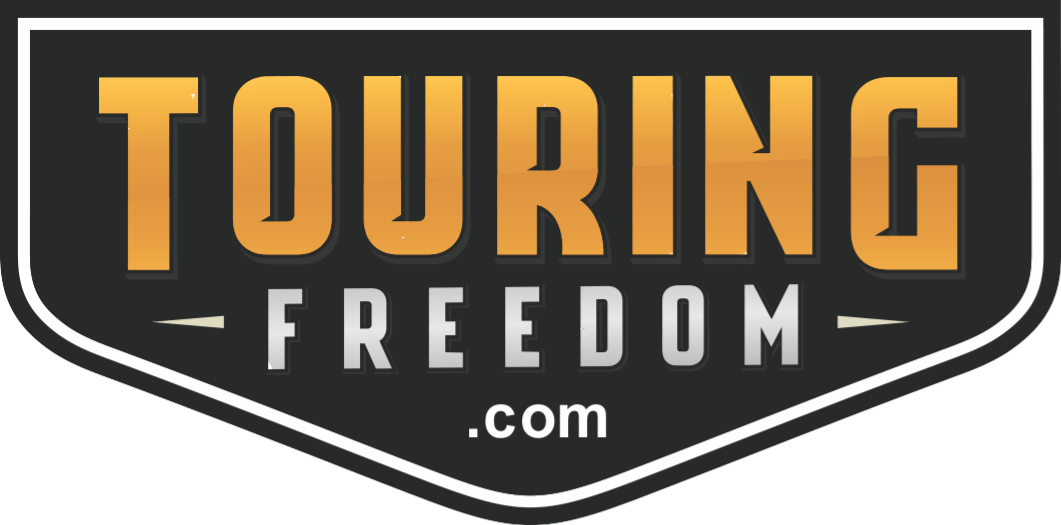Touring Freedom Blog
Touring Freedom Blog

AI is Picking Up Speed. Are You?
If you thought artificial intelligence was something for tomorrow, it's time to wake up because it's already tomorrow. The AI world is on a relentless sprint, and this week dropped some news that's going to shape the next chapter of how we live, work, and build businesses online.
Let's dive right in because, trust me, you don't want to miss this train.
🚨 GPT-5.5: Not Just an Upgrade, a Revolution
You might've heard me talk about OpenAI before. They're the folks behind ChatGPT, the tech that's turned everyone into overnight AI enthusiasts. But just when you think you've seen it all, OpenAI drops GPT-5.5, and suddenly we're not just talking text prompts anymore. We're dealing with AI that can process and respond to text, images, and audio simultaneously. Yes, simultaneously.
This means we're stepping into an era where AI isn't just a fancy chatbot. It's becoming something closer to Jarvis from Iron Man, integrating seamlessly into our daily lives.
Here's what really caught my eye: GPT-5.5 is already being tested in emergency response scenarios. Imagine you're in a crisis, dialing 911, and before the dispatcher even picks up, AI has analyzed ambient sounds, recognized signs of distress, and pinpointed your location. It's not theory; it's actively being trialed.
From a personal perspective, I remember a situation when we were traveling in the RV and one of my sons got hurt. Waiting on hold, trying to clearly communicate our location was nerve-wracking. AI like this isn't just a convenience. It could genuinely save lives.
So, for us entrepreneurs and online business builders, why should we care?
Think customer service automation on steroids, virtual assistants that can manage multimedia content seamlessly, or instant AI-driven troubleshooting that could drastically enhance your customer experience. If you're selling online courses, imagine your AI assistant instantly responding with video walkthroughs or audio explanations customized precisely to your customer's inquiry.
🧠 AI That Fills in the Blanks (Literally)
Speaking of game-changers, researchers have created an AI model that can accurately reconstruct missing information. We're talking about AI capable of recreating faces from mere shadows and fixing corrupted files like they're fresh out of the box. That's not a plot from a Netflix thriller; it's today's tech reality.
Think about what this means for fields like cybersecurity, forensic investigations, and data recovery. In an online information business, imagine being able to swiftly recover a corrupted course file right before launch or effortlessly reconstruct vital data that's become partially unreadable.
Let me share something personal here. Not long ago, I lost some crucial data right before launching a new workshop. I was able to patch things up manually, but the stress was real. An AI solution that handles those gaps effortlessly? That's the kind of tech I'd happily pay for yesterday.
Beyond just the tech itself, the ability for AI to fill information gaps is symbolic of the era we're entering. AI isn't just a tool for convenience; it's becoming critical infrastructure. Whether you're running workshops, courses, memberships, or selling digital products, having tech that protects and preserves your content is like having insurance for your business.
🌐 Setting Global Guardrails: Ethics Hit the Mainstream
The United Nations isn't typically where tech entrepreneurs look for guidance, but their recent push for global AI ethics standards is crucial. They're calling for "AI-free zones" in sensitive areas like hospitals and schools. Think about that for a moment. AI is advancing so rapidly that countries are now actively debating where to limit its reach.
I think about my granddaughter, and the role tech will play in her life. We homeschool our sons, integrating real-world experiences and practical skills. How do we balance powerful AI tools with authentic learning experiences? The UN’s proactive stance highlights that, as we embrace tech, we also have a responsibility to question its role in our lives and communities.
For those of us in the online information space, ethics isn't just a nice-to-have; it's fundamental to trust. Your customers don't just buy your content; they buy your reputation and integrity. Understanding these emerging ethical frameworks helps position you as a leader, someone who doesn't just chase trends but thoughtfully integrates technology in ways that serve your audience authentically.
AI Is Here to Stay: Are You Keeping Up?
As AI's pace accelerates, you're faced with a choice: embrace it or get left behind. And let's be clear, "getting left behind" doesn't mean failing tomorrow; it means becoming irrelevant today.
How can you take action right now?
Stay Informed: AI is developing daily. Read, listen, and watch content to keep pace.
Experiment: If you're not already incorporating AI into your workflow, start small. Use it to automate customer responses or streamline content creation.
Network Strategically: Connect with others who are actively implementing AI. Join communities (like our Touring Freedom group!) to share insights and stay ahead.
We often talk about pivoting smartly versus getting distracted by every shiny new tool. AI isn't shiny; it's foundational. It's reshaping online businesses faster than any technology in recent memory. If you're building an information business, or any business, for that matter, you owe it to yourself and your audience to understand and leverage AI.
In closing, AI isn't a freight train to fear. It’s one you want to catch, right now. If your business is built on sharing knowledge, insights, and strategies, ignoring AI today would be like ignoring the internet 20 years ago.
The choice is simple: Get on board, or watch the opportunities roll right past you. I know where I'm headed, and I hope to see you there.


